Choose the best probiotic for your lifestyle and enjoy the Benefits of Probiotics…
Whether you’re interested in health and wellness or not, you’ve probably heard people talking about probiotics. What are they, though and which is the best probiotic for you?
What are Probiotics?
In a nutshell, probiotics are strains of good bacteria that are good for your health and digestion. That’s why you’ll often hear the phrase “gut health” thrown around in conjunction with probiotics.
Want to learn more about probiotics and their benefits? Keep reading. We’ll also provide some helpful tips on how to choose the best probiotic for your specific health needs.
What are the Benefits of Probiotics?
Probiotics come with a number of benefits for the body’s systems, including those listed below:
Digestive Probiotics & Digestion
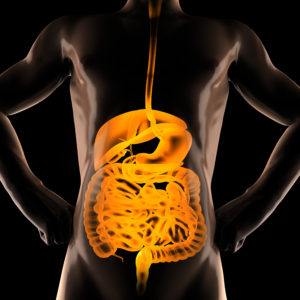
The best-known benefit of probiotics is their ability to balance out the bacteria in our bodies and improve digestion. Imbalances in our digestive system can occur for a number of reasons, from illness to a poor diet or consumption of antibiotics.
Almost everyone can benefit from improved digestion. But, probiotics are especially beneficial for people who suffer from digestive disorders like ulcerative colitis and irritable bowel syndrome.
A study from 2014 found that probiotics can reduce the premature infants’ risk of developing severe necrotizing enterocolitis — a fatal bowel condition — by 50 percent.
Prevent and Treat Diarrhea
 Diarrhea often occurs when we take antibiotics. By balancing out the bacteria in our digestive system with probiotics, we can prevent diarrhea or reduce its severity.
Diarrhea often occurs when we take antibiotics. By balancing out the bacteria in our digestive system with probiotics, we can prevent diarrhea or reduce its severity.
Some researchers have found that probiotics reduced diarrhea in those taking antibiotics by 42 percent.
Certain strains of probiotics also help reduce the duration of diarrhea in people who aren’t taking antibiotics. The following strains are the ones that seem to be the most helpful in reducing the duration and severity of diarrhea:
- Lactobacillus rhamnosus
- Lactobacillus casei
- Saccharomyces boulardii
Be sure to keep an eye out for these strains when searching for the best probiotic.
Improve Mental Health, Fight Depression

One of the best probiotic benefits is the fact that they are also helpful in treating mental health problems like anxiety and depression.
One six-week study followed 70 petrochemical workers in a double blind placebo-controlled trial. Researchers found that those who either consumed 100 grams of probiotic yogurt or a probiotic supplement each day were less likely to experience depression, anxiety, and stress.
Another eight-week study found that people who regularly took probiotic supplements experienced decreased depression levels.
Improve Heart Health
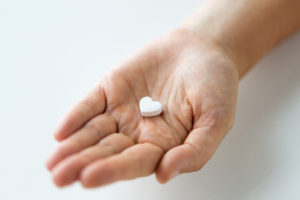
Some strains of probiotics can also help lower levels of LDL (“bad cholesterol”) and blood pressure. This, in turn, can improve heart health.
One study found a total decrease in cholesterol of by 4 percent and a 5 percent decrease in LDL cholesterol after subjects consumed probiotic yogurt for 2-8 weeks.
It’s thought that these strains lower LDL by breaking down bile. Bile aids in digestion and is made primarily of cholesterol. If it’s broken down by probiotic strains, bile is less likely to be reabsorbed as cholesterol after it’s done its job.
By lowering LDL cholesterol, probiotics can also modestly lower blood pressure and improve overall heart health.
Probiotics Immune System
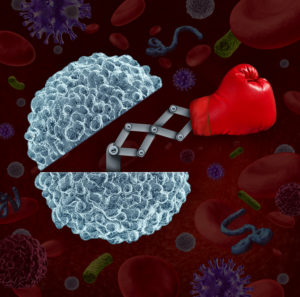 Probiotics have also been shown to help boost the immune system in several ways. First, they inhibit the growth of harmful, disease-causing bacteria.
Probiotics have also been shown to help boost the immune system in several ways. First, they inhibit the growth of harmful, disease-causing bacteria.
Probiotics also promote the body’s production of natural antibodies and boost immune cells like T lymphocytes and IgA-producing cells.
One study found a 17 percent reduction in the frequency and severity of respiratory infections in children who took the Lactobacillus GG probiotic strain.
Another noted a 50 percent reduction in the risk of developing urinary tract infections among women who took the Lactobacillus crispatus strain.
Probiotics Weight Loss
 Some probiotic strains have also been shown to aid in weight loss. They do this in various ways.
Some probiotic strains have also been shown to aid in weight loss. They do this in various ways.
For example, some strains prevent absorption of dietary fat in the intestine, so it’s excreted rather than stored. Others help promote feelings of fullness by increasing hormone levels.
At the same time, probiotics aren’t a substitute for healthy meals and a good exercise routine when it comes to weight loss. Some strains have even been linked to weight gain.
Probiotic Foods and Probiotic Supplements
The health and fitness world is saturated with information about all kinds of supplements, from whey protein to probiotics.
It’s easy to feel overwhelmed by all the ads you see on a regular basis for these products. You might even start to wonder if you actually need all the supplements people are selling you. Can’t you just modify your diet to get what you need?
As the folks at Harvard Medical School have noted, there are many foods and drinks that contain some strains of probiotics. Some common sources include:
- Yogurt
- Kefir
- Fermented vegetables
- Fermented drinks like kombucha

These foods and drinks do all contain good bacteria, and it’s good to include them in your diet.
However, food manufacturers aren’t required to list the specific probiotic strains contained in their products. As a result, it’s hard to know which strains you’re getting and if they’re the ones that are most beneficial for you.
Because of this, a probiotic supplement is generally the best option. This is especially true if you want to make sure you’re getting the ideal amount of specific strains of good bacteria.
Probiotic Side Effects and People Who Should Avoid Probiotics
Most people can benefit from probiotics. But, they’re not for everyone.
People who have deficient immune systems should speak to their doctor before beginning to use probiotics. The same goes for people receiving cancer treatment.
How Do I Choose the Best Probiotic?
Keep these factors in mind when trying to find the best probiotic for your specific health needs.
CFU Count
Probiotics will often have a number of CFUs (Colony Forming Units) listed on the box or bottle. The best probiotic will have a minimum of 3 billion CFUs. Some can have as many as 200 billion. You can categorize these as follows:
Three billion CFUs is best for people who aren’t suffering from any specific conditions (that they know of) and are just looking to improve their general health.
A higher potency is recommended for the
following individuals:
- Senior citizens
- People who are traveling or experiencing a great deal of stress
- Those who have been eating a lot of processed foods
- People with compromised digestive or immune systems
While a higher potency can be more effective for those who are older or ill, there’s no need to go above 50 billion CFUs. Any number higher than this hasn’t been shown to provide any additional health benefits. It simply increases the overall cost of the supplement.
Types of Probiotics?
 As you saw in the above section, there are various strains of probiotics, and they all have different benefits. If you’re looking for the best probiotic to help with a specific condition, make sure the supplement you buy contains the strains that have been proven to be most beneficial.
As you saw in the above section, there are various strains of probiotics, and they all have different benefits. If you’re looking for the best probiotic to help with a specific condition, make sure the supplement you buy contains the strains that have been proven to be most beneficial.
If you want to take probiotics for general health, many doctors agree that the best probiotic strains to look for include:
- L. acidophilus for nutrient absorption and the digestion of dairy foods
- B. longum to maintain the integrity of the gut wall
- B. bifidum for digestion of dairy products, complex carbohydrates, fat, and protein
- L. rhamnosus to prevent traveler’s diarrhea
- L. fermentum to neutralize byproducts of digestion and promote healthy levels of gut bacteria
Be sure to check the label of your probiotic to make sure it contains at least the first three strains on this list. The bottom two are very beneficial but not quite as necessary.
How are They Packaged?
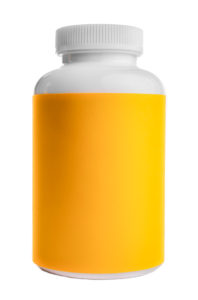 Probiotics are live bacteria. This means that they need to be packaged and stored in a way that allows them to remain alive so that you can reap their benefits. Taking a supplement full of dead bacteria isn’t going to do you any favors. Properly stored probiotics are designed to meet the label claim by the expiration date. To achieve this they contain amounts exceeding the label claim at the time of manufacture.
Probiotics are live bacteria. This means that they need to be packaged and stored in a way that allows them to remain alive so that you can reap their benefits. Taking a supplement full of dead bacteria isn’t going to do you any favors. Properly stored probiotics are designed to meet the label claim by the expiration date. To achieve this they contain amounts exceeding the label claim at the time of manufacture.
Probiotics all used to need to be stored in the refrigerator. A lot of advances have been made over the years to make probiotics more convenient, while still ensuring that they remain viable while they travel to and sit on store shelves.
So how do you know if you’ve bought a probiotic that was packaged and delivered appropriately? The best probiotic supplements will explain on the box what the manufacturer did to ensure their product will work as it’s supposed to.
You’ll also want to look for bottles that will keep your probiotics as safe as possible. Bottles that are thick and opaque are ideal, but some probiotics come in blister packs that also do a good job at keeping out light, heat, and moisture.
When Do They Expire?
The supplement industry is well-regulated and manufacturers are required to list expiration dates on their products. It is safe to take properly stored probiotics past the best by date, however, a small percentage of the potency will be lost each month past that date.
Look for probiotics that clearly list an expiration date on the label to avoid getting a less-than-ideal product.
Is There a Guarantee?
The best probiotic supplement manufacturers will also offer you your money back if their product doesn’t work the way they say it will.
This is just a good business practice all around. If a manufacturer doesn’t have enough faith in their product to offer you a refund if it’s not effective, it’s not a product worth investing in. At NetNutri we honor all manufacturer guarantees.
How to Make Probiotics Work for You
 To ensure your probiotic works for you, it’s important to nourish your digestive system (also known as your gut microbiome) with whole, healthy foods. Probiotics are definitely beneficial, but they’re not magic.
To ensure your probiotic works for you, it’s important to nourish your digestive system (also known as your gut microbiome) with whole, healthy foods. Probiotics are definitely beneficial, but they’re not magic.
Even the best probiotic on the market can only do so much if you’re continuing to eat a lot of processed, sugary foods while taking it.
Simple sugars are especially bad for those who have an unbalanced amount of bacteria in their gut. It actually feeds the bad bacteria and helps it reproduce! The presence of good probiotics make it difficult for bad organisms to proliferate.
Bad bacteria can’t thrive on things like healthy fats, proteins, complex carbohydrates, and fiber. So, if you really want to help your probiotics do their job and relieve your symptoms, you’ll cut out the bad stuff and improve your diet.
How can I tell if my Probiotics are Working?
 Once you’ve invested in what you think is the best probiotic supplement for you, you want to know that it’s working properly, right? Listed below are the most common signs that your probiotic is doing its job.
Once you’ve invested in what you think is the best probiotic supplement for you, you want to know that it’s working properly, right? Listed below are the most common signs that your probiotic is doing its job.
Your Symptoms May Get Worse Before They Get Better
It seems counterintuitive. But, when your probiotic is working, your symptoms might actually get worse for a brief period of time. This is actually a sign that you’re taking the best probiotic for your condition.
When your symptoms get worse, it means the probiotics are working to recolonize your digestive system.
Remember, the worsening of your symptoms should not last longer than two weeks. If they do, you might be taking the wrong strain for your condition.
If your symptoms are getting unbearable, you can decrease your dosage until things calm down. For example, take one pill per day instead of two. You should also be sure to stay hydrated to help your body detoxify and eliminate the bad bacteria.
Infections Disappear
If you’re taking probiotics to help with yeast infections, urinary tract infections, or any other kind of infection, you’ll probably notice improvements as soon as you start taking the supplements.
Immune System Gets Stronger
Your immune system will also improve in general since it’s no longer working overtime to fight off frequent infections. If you’re someone who gets lots of colds or experiences severe allergies, you might notice them decreasing after you find and start taking the best probiotic for you.
What if They Don’t Work?
If you’ve given them time and your probiotics don’t seem to be helping or have been making your symptoms worse for at least two weeks, it’s time to see your doctor. This might be happening because you’re taking the wrong strain or dose.
It’s also important to see a doctor before you try to self-medicate with any other products. Some drugs do not interact well with probiotics and could make your symptoms and side effects even worse.
Get Your Probiotics Today
Now that you know the benefits of probiotics and what to look for, it’s time to start shopping. Check out our online store today to find the best probiotic for your needs!
In addition to vitamins and supplements, we also offer a wide range of nutrition, weight loss, and personal care products. All your bases are covered when you shop with us!




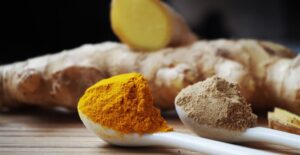
This post definitely helped me find the best probiotic supplement suitable for my needs! Thankyou!
Thanks Stephanie, we’re glad our probiotics post helped you.